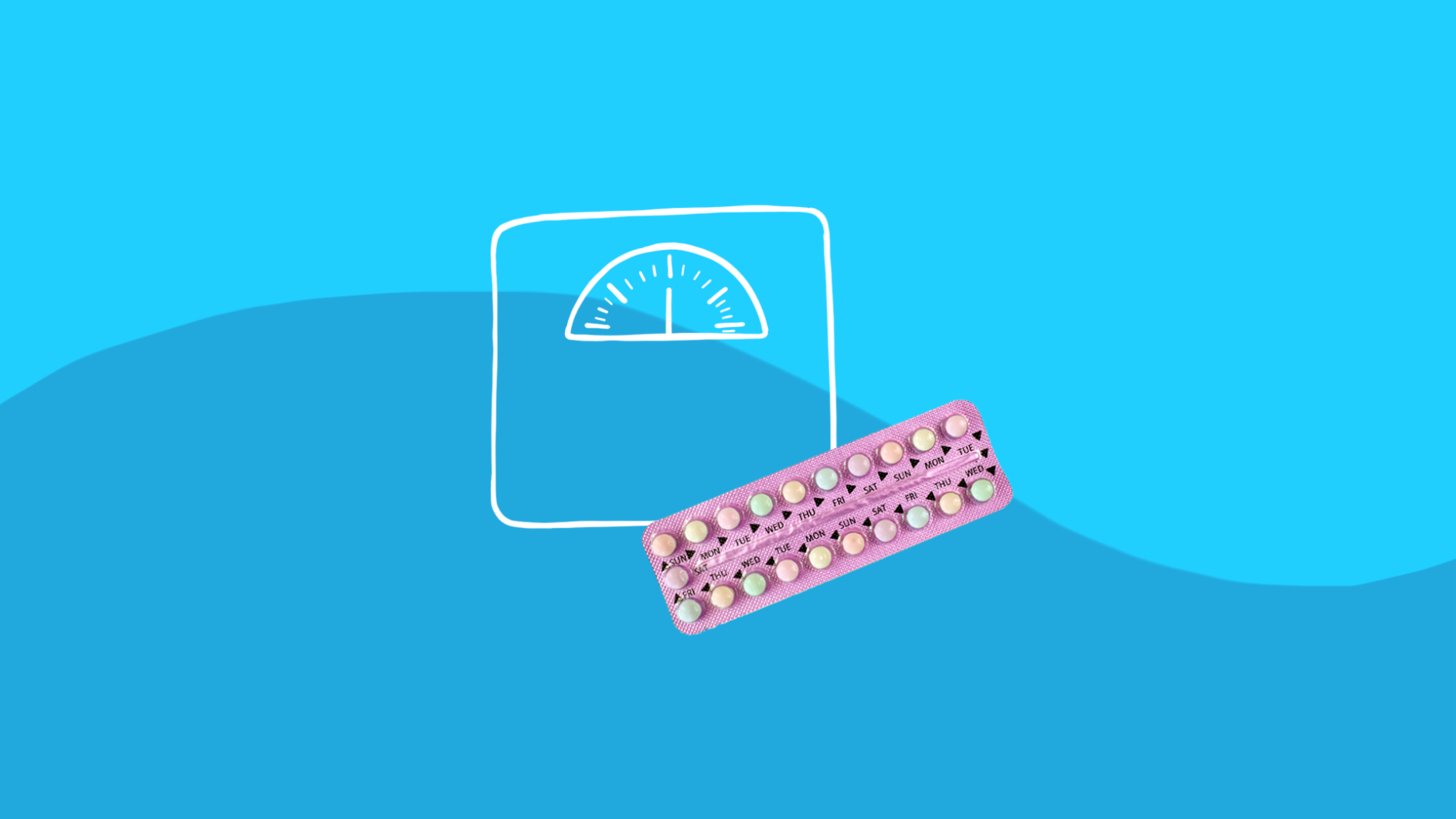Most people have heard stories about women who started using a form of birth control only to watch the numbers on the scale slowly start to rise. In fact, some women even avoid taking hormonal birth control because they believe oral contraceptives (like birth control pills), intrauterine devices (IUDs), shots, and implants can cause weight gain.
The good news, according to healthcare providers, is that birth control weight gain isn’t inevitable—or the norm.
Does birth control make you gain weight?
In most cases, birth control does not cause weight gain. “Birth control pills contain hormones and many women are concerned that if they start taking these pills, it will cause weight gain,” says Heather Irobunda, MD, an OB-GYN in Forest Hills, New York. “The reality is there have been many studies that have looked at weight gain and birth control pills and haven’t found a link between the two.”
“A review of medical studies actually show that today’s hormonal birth control options are unlikely to cause weight gain,” agrees Arthur Ollendorff, MD, clinical professor of OB-GYN at the Virginia Tech Carilion School of Medicine.
It’s a common misinterpretation of a few other explanations for weight changes.
1. Water retention
Temporary side effects of birth control may include fluid retention, bloating, or an increase in muscle tissue or body fat. These are short-lived, and will go away in time.
“Some women might perceive fluid retention as weight gain,” says Hina Cheema, MD, OB-GYN in Troy, Michigan. “You may be losing fat because of your diet and fitness routine, but your scale doesn’t reflect that. This doesn’t mean you aren’t losing weight, it just means your weight loss may have been replaced by fluid retention, which should improve in two to three months.”
2. Lifestyle changes
The average American woman typically puts on approximately a pound each year, starting in early adulthood, it’s easy to assume that birth control is the culprit behind those extra pounds. In fact, young women often start using contraception in late puberty or after puberty ends, right when they stop growing taller and normally start increasing their body fat content. When a patient is concerned about body weight after starting contraceptive pills, Dr. Irobunda will ask if anything else has changed in her life such as diet, activity levels, or even whether she is experiencing concerns at home or at work.
“If someone has new stressors in [her life], that can definitely contribute to weight gain,” says Dr. Irobunda. Exercising regularly and eating a healthy diet can prevent weight gain no matter what form of contraception a woman chooses.
3. Older forms of birth control
Many of the misconceptions about birth control and weight gain began as a result of older birth control pills that contained higher levels of estrogen hormones.
One study found that birth control pills developed in the 1950s contained 150 micrograms (mcg) of the estrogen mestranol—whereas newer low-dose birth control pills only contain lower levels of estrogen (20-50 mcg). If you’re concerned, talk to your healthcare provider about low-dose options.
What birth control options make you gain weight?
There is one birth control option that has been shown to cause long-term weight gain in some women: hormonal injections.
“The hormonal contraceptive shot Depo-Provera (aka depot medroxyprogesterone), which is administered every three months, has been shown to cause weight gain in some women,” Dr. Irobunda says. “With Depo-Provera, women may also notice that it’s more difficult to lose weight.” One study found that in the first six months of use, 1 out of 4 women who received the Depo-Provera shot gained 5% or more of their starting weight.
If weight gain is a concern, you should speak with your provider about alternative birth control options, such as the pill, the ring, the implant, or an IUD, rather than the shot.
It’s important to note that the shot doesn’t contain calories or change your metabolism, rather it increases your appetite. So, for some women, the shot is a great contraception option if they continue to eat healthy foods and portion sizes and stay active.
Which birth control doesn’t cause weight gain?
The pill, the patch (Xulane), the ring (Nuvaring), the implant (Nexplanon), and IUDs (such as Mirena or Paragard) are all birth control methods that are unlikely to cause any significant weight gain.
Of course, there are always exceptions to the rule. Studies have shown that the implant is unlikely to cause weight gain, but some users report it. The majority of hormonal IUD users do not pack on the pounds, but about 5% of patients report rising numbers on the scale.
If you’re worried, there are a lot of alternative options that never lead to weight gain—including non-hormonal contraception like a copper IUD or barrier methods, also known as condoms. “Women worried about gaining weight from hormonal birth control should consider non-hormonal methods like the copper IUD or a low-systemic dose of hormone such as progestin IUD,” Dr. Ollendorff says. “Since all birth control methods have possible side effects, I ask my patients about their concerns and choose an option that best fits their needs.”
“Copper, non-hormonal IUDs haven’t been shown to cause weight gain,” Dr. Irobunda agrees. “Ultimately, side effects are unique to each woman, so it’s very important to talk to your medical provider to discuss all of your options and concerns.”











